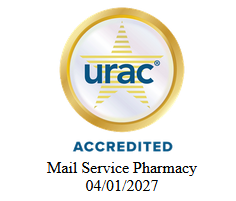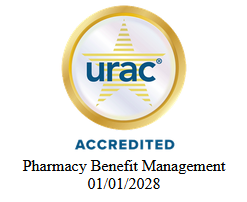Oral Contraceptives
Oral Contraceptives, Emergency Contraceptives and Abortive Medications

There are important differences between oral contraceptives, emergency contraceptives, and abortive
medications. These agents act differently and have different regulations, but all have the same purpose of birth
control. The following article provides information on the three methods.
Oral contraceptives work by mimicking the natural hormones produced within the ovaries, which prevents the
ovulation process and the transportation of sperm. Oral contraceptives are available in two formulations: a
combination of estrogen and progesterone, or progesterone only. Most combined contraceptives (estrogen plus
progesterone) are taken daily for 21 to 24 days and include a week of placebo tablets. Placebo tablets contain
inactive ingredients that have no therapeutic effect on the body and are taken daily to increase adherence to
therapy. On the other hand, progesterone-only contraceptives are taken every day and do not include placebo
tablets. To be effective, one tablet is taken the first day of the menstrual cycle and must continue to be taken
every day at the same time. If the tablet is not started during the menstrual cycle, therapy must be combined with
another backup method of contraception for seven (7) days. However, if a dose is forgotten, it is recommended to
take two (2) tablets the next day. If a dose is missed for two (2) consecutive days, take two (2) doses of the oral
contraceptive as soon as possible, then continue with the daily dose as prescribed and use a backup method of
contraception for seven (7) days. If a dose is forgotten for two consecutive days and unprotected sex occurred
during the five (5) days prior to forgetting the dose, consider using emergency contraception. If oral contraceptives
are used correctly and consistently, they are an effective method of contraception. Currently, a prescription is
required to obtain oral contraceptives at the pharmacy. However, there is the possibility of an over the counter
(OTC) product that may be available in the future.
Emergency contraception is used after unprotected sex or when a contraceptive method fails. Its mechanism of
action is to prevent fertilization by altering the transport of the sperm and/or egg. This method is capable of
reducing the probability of pregnancy even when the act occurs close to the time of ovulation, which is when
conception can most likely occur. The most widely used emergency contraceptive is known as the morning-after-
pill. A common brand name is Plan B, which contains a hormone that prevents pregnancy before implantation
occurs. This tablet should be taken as a single dose within the first 72 hours of unprotected sex and is most
effective the sooner it is taken after the occurrence of unprotected sex.
Abortive medications are drugs that generate a pharmacological abortion for pregnant patients. The oral regimen
consists of a combination of drugs: mifepristone (Mifeprex) and misoprostol (Cytotec). First, the mifepristone
(Mifeprex) tablet is taken to prevent the growth and development of the pregnancy, with the misoprostol (Cytotec)
tablet taken within the first 48 hours of taking the mifepristone (Mifeprex). This medication generates cramps and
bleeding to empty the uterus. This regimen requires a doctor's prescription and will follow the regulations of each country/state regarding planned abortions.
These three methods of birth control involve different mechanisms of action, are used for specific situations, and
must be managed appropriately. To avoid or minimize the occurrence of serious adverse events, they must be
administered correctly. Therefore, it is recommended to always contact the nearest healthcare provider, doctor
and/or pharmacist.
References:
Casey, F. E. (2022, June 21). Anticoncepción de Urgencia - Salud Femenina. Manual Merck
versión para el público general. Retrieved July 8, 2022, from https://www.merckmanuals.com/es-pr/hogar/salud-
femenina/planificaci%C3%B3n-famili ar/anticoncepci%C3%B3n-de-urgencia?query=Anticonceptivos+orales
Casey, F. E. (2022, June 21). Anticonceptivos Orales - Ginecología y obstetricia. Manual Merck
versión para profesionales. Retrieved July 8, 2022, from
https://www.merckmanuals.com/es-pr/professional/ginecolog%C3%ADa-y-obstetricia/pla
nificaci%C3%B3n-familiar/anticonceptivos-orales
Lane, M. (n.d.). Unintended pregnancy in the United States - Guttmacher Institute. Unintended
Pregnancy in the US. Retrieved July 8, 2022, from https://www.guttmacher.org/sites/default/files/factsheet/fb-
unintended-pregnancy-us.pdf
Parenthood, P. (n.d.). The abortion pill: Get the facts about medication abortion. Planned
Parenthood. Retrieved July 8, 2022, from https://www.plannedparenthood.org/learn/abortion/the-abortion-pill
















